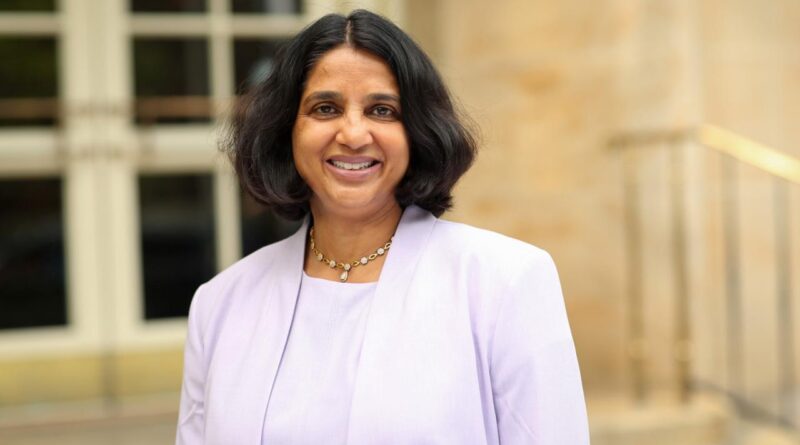Uma Reddy of Columbia has been elected to the National Academy of Medicine
Uma M. Reddy, professor and assistant research chair in the Department of Obstetrics & Gynecology at Columbia University’s Vagelos College of Physicians and Surgeons and professor of community and family health at the Mailman School of Public Health, is among ‘a select group of leaders in medicine and health elected this year to the National Academy of Medicine.
Being elected to the National Academy of Medicine is considered one of the highest honors in the field of medicine and health. This year’s group of 100 has made significant contributions to the development of medicine, health care and public health and brings NAM to nearly 2,400 members.
Reddy was selected for his leadership in paradigm-shifting research that has advanced the understanding of stillbirth, fetal death, and labor management and its impact on maternal morbidity. With large multi-institutional groups and trials, his research drives new standards for national birth practices and improved outcomes for pregnant women and their children.
Prior to joining Columbia in 2022, Reddy served as professor of obstetrics, gynecology, & obstetrics and chief of obstetrics at Yale School of Medicine.
From 2003 to 2018, as a medical officer at the Eunice Kennedy Shriver National Center for Child Health and Human Development, Reddy led several large clinical trials and long-term studies including Maternal-Fetal Medicine Units Network. The MFMU Network, made up of 15 clinical centers including the Columbia University Irving Medical Center, has conducted important research that has defined medical methods of childbirth, including determining the optimal time to start delivery and establish the benefit of corticosteroids for fetal lung development.
An international expert on stillbirth, Reddy directed the NICHD Stillbirth Collaborative Research Network, the largest study in the United States elucidating the epidemiology and causes of stillbirth. At SCRN, Reddy demonstrated how the latest technology can improve the detection of genetic causes of stillbirth, resulting in microarray testing as a standard of care during stillbirth. dead. Reddy’s landmark findings challenged the common assumption that higher rates of medical and reproductive problems explained the entire Black-white difference in fertility rates and showed that health factors were responsible for the risk. increased fertility among Blacks.
Reddy had a great impact on the birth process. He showed how the way of delivery for childbirth directly affects maternal diseases, which is a reversed outcome. As a senior researcher at the Consortium on Safe Labor, he redefined labor practices, leading to major changes in US labor laws. Reddy’s research improved the definition of the “term” which, at the time, treated all babies born at 37 weeks or more as a single group. He found that there is a big difference in the results of babies born in the first part of this period compared to those born in the last part of the period. Based on these results, ACOG changed the definition of babies born at 37 and 38 weeks to “early term” and babies born from 39 to 41 weeks to “full term.” Reddy’s research has advanced our understanding of the causes of preterm birth and infant mortality and morbidity in the United States and the effects of gestational age, mode of delivery and racial/ethnic disparities in these outcomes. He has published more than 350 peer-reviewed papers, many in high-impact journals including the New England Journal of Medicine and the Journal of the American Medical Association.
At Columbia, Reddy is leading a study measuring the effectiveness of multiple maternal sepsis vaccines to predict the risk of maternal sepsis, the second leading cause of maternal death. She also leads NY-CHAMP, NIH’s Maternal Health Research Center and community partners to collaboratively identify how public health systems lead to disparities in maternal mortality. and diseases and strategies to reduce these effects. NY-CHAMP implements innovative strategies to reduce maternal mortality and morbidity in New York City and across New York state.
In addition to his research, Reddy is a respected teacher and physician. He has served on the American College of Obstetrics and Gynecology Committee on Practice Bulletins – Obstetrics and currently serves on the American College of Obstetrics and Gynecology Clinical Document Review Panel – Medical Committee. She is a board examiner in obstetrics and gynecology for the American Board of Obstetricians and Gynecologists, and was selected in 2020 to participate in the Executive Leadership Program in Academic Medicine Program for Women. He is a member of the American Gynecological & Obstetrical Society.
#Uma #Reddy #Columbia #elected #National #Academy #Medicine

